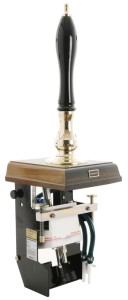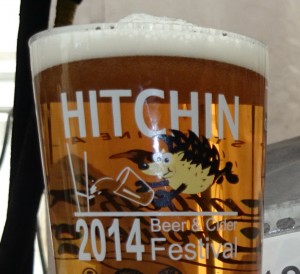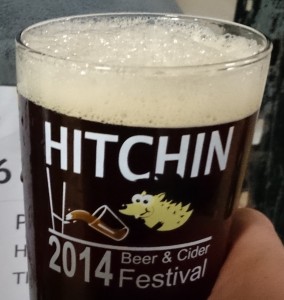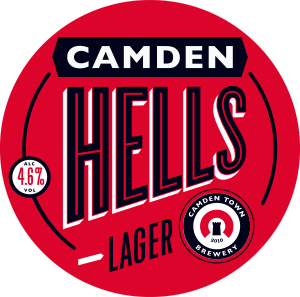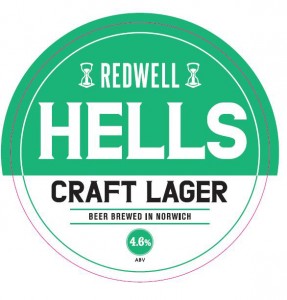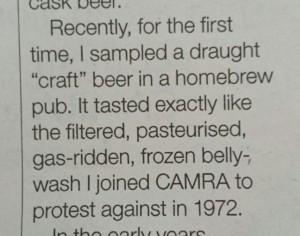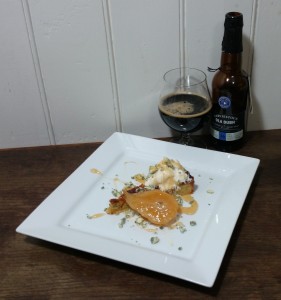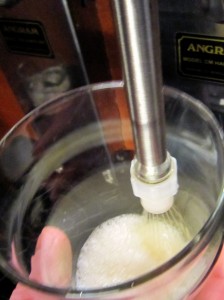
Sparkler – being used incorrectly I believe, but it does nicely show how they function – from Flickr
There has been some discussion of sparklers recently. Yet again. The near-religious divide they create in the cask beer world is amusing. Personally I am usually happy to put it down as a matter of personal preference & taste and leave it like that. (Although it can be fun to carry on purely for the sake of a good argument.) Really it is another thing that goes in the same bag as preferences over temperature, carbonation, and actual styles of beer… I’d not profess that stout is the one true way to drink and enjoy beer, so why would I profess that some given fixed method of dispense is a “one true way”?
I, personally, prefer that my pint is not put through a sparkler. What they do is force carbonation out of beer. For the sake of appearances… that nice tight head.[1] There is also an impact on the flavour and aroma of the beer. What they cannot do is add condition that isn’t there in the first place. Neither can using a beer engine without a sparkler. Neither can gravity dispense.
Gravity dispense… is where I found my thoughts wandering. It is common knowledge, widely believed, that the humble beer engine is the best way to serve a cask ale. But why is it so? Is it so?
What a beer engine does is “suck” the beer from the cask along several feet of pipe, through a cylinder, and shoot it down a narrower pipe into your glass. In the process the beer is severely agitated – releasing CO2 from solution and helping to form a nice head on your beer. But this is a side-effect really – the purpose of the beer engine is simply to move the beer, against gravity, from the barrel to the glass. From the best place to keep the beer (nice cool cellar) to the best place to serve the beer (nice warm bar). It certainly saves on having to run up and down stairs a lot.
So what we have is a practical device that has the side-effect of helping to force CO2 out of solution and giving your beer a nice foamy head. The humble sparkler takes this one step further by adding to that agitation, forcing more CO2 out of solution more rapidly – and forms a tighter head on your beer. (Whether or not that is an improvement is entirely up to the individual.)

Angram “Engine” – photo by a chap called Waffty on Jim’s Beer Kit, accompanied by a description of how it works.
But the fact is that that same beer dispensed directly from cask into a glass is going to have more CO2 in solution. Beer dispensed via beer engine (with or without sparkler) simply cannot be less “flat” than the same beer dispensed directly from the cask. Yet is seems to be a commonly held belief that gravity dispense means flat beer. This, I suspect, comes down to two things:
- The “head” on a beer is seen as an important indicator of non-flatness. Yet is it really? The mechanism of a beer engine (especially with sparkler) can force what little CO2 remains in a beer out of it, it creates head against all odds. The result is your already pretty flat beer ends up even flatter for the sake of that head. Appearances can be deceiving?
- Most people’s experience of gravity dispense is beer festivals. And there are a whole host of issues with beer festivals, especially: insufficient conditioning time, insufficient cooling, insufficient cellaring skills. All three of these yield flatter beer.
- Conditioning: the tight schedule of festivals relies on beer coming from the brewery/supplier sufficiently conditioned. This is the norm these days, but sometimes a beer needs time that a festival simply cannot give it.
- Cooling: warmer beer has less CO2 in solution. If you vent your beer at 15C, say, it’ll loose a lot more CO2 – and if it then cools to 12C it will appear even flatter as a result. (Ensure your beer is cool before you vent it.)
- Cellar skills: knowledge of the previous two, but also simple things like use of nylon pegs at all non-service times for most beers. Keep that condition in the beer!
So, basically, beer festivals give gravity dispense a bad name.[2]
An antidote to this is a sharper focus on cask ale “cellaring”/quality at festivals. Adequate cooling, adequate space and time to match bar capacity, and adequate knowledge and skills. With these three sorted a pint of cask ale whether from beer engine or gravity should be fantastic and sport a nice frothy head.
Gravity dispense in pubs is rare – but is a growing trend mainly thanks to the micropub “boom” and use of non-pub buildings as pubs. Where I have come across it it usually suffers the same problems as festivals. A lack of ability to give at-bar stillaged beer appropriate time and cooling are the enemies here – so too is the lack of knowledge of some of these new landlords who’re new to keeping cask ales.
If there is a natural superiority to the beer engine it is that it allows you to keep your beer in a properly cooled cellar away from the point of dispense. Gravity can be just as good… but due to various practical limitations the odds are often against it.
The story does not end there with respect to comparing cask dispense methods. I have tasted a few beers side-by-side sparkled-and-unsparkled and there appears to be a flavour difference. Albeit this has not been done in a blind tasting situation – just casually in a few northern pubs. The sparkled beers usually appear muted… blunted… you could say “smoother” perhaps. What is behind this? Tight head on a sparkled pint blocking some level of aroma perception perhaps? Is enough CO2 forced out of the beer to perceptively alter acidity? Is there something else there… does the sparkler add a rapid-oxidation effect, with an impact akin to putting wine through a blender to “breathe” it?
And if a change of flavour is evident in sparkled-v-unsparkled cask ale – is there similar between gravity-v-beer-engine? Can a beer engine actually change, and improve, the flavour of beer? I doubt it. But I keep an open mind…
Some further research is required… aka: drinking beer ;)
[1] I’m not saying sparklers make beer flat! If the cask is well kept and contains a good amount of CO2 in solution there will still be a good vol CO2 in the beer post-sparkler. In fact, as I see it, in order to serve non-flat beer sparklers demand the best in cellarmanship. (And perhaps this is why beer is generally kept better up north than it is in, say, London.) That said, I near-always find a sparkled pint is flatter than I would like. I do have a preference for a bit more carbonation in my beer however, dirty foreigner that I am…
[2] Though some are better than others – I pride myself in the quality of the beer at my own festival. But even I, with my pretty good practical knowledge and scientific understanding, cannot have 100% perfect beer at a cask ale festival. Cooling is a pain – even using the fancy CAMRA HQ cooling equipment (this year I had beer getting a bit too cold). And the “time” element is impossible to do anything about (luckily few beers come to a festival with insufficient condition in this day and age, but there are always some.)
